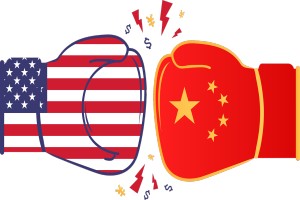
Beijing/Jakarta: China today accused the United States of “stoking bloc confrontation in the Asia-Pacific”. Reacting to the US Secretary of State Antony J. Blinken’s call that China should cease its “aggressive actions” in the Indo-Pacific, Beijing reponded by quipping that while trumpeting the so-called “China threat”, the US says it does not want conflict with China. “Such a self-contradictory approach is not in keeping with the spirit of the meeting between Chinese and US heads of state and will hardly be recognized by countries in the region,” Chinese foreign ministry spokesperson Wang Wenbin told mediapersons in Beijing.
Blinken had stressed on a free and open Indo-Pacific in Jakarta today and claimed that it was not about a contest between a U.S.-centric region or a China-centric region, but rather about upholding the rights and agreements that are responsible for the most peaceful and prosperous period that this region and the world has ever experienced.
“That’s why there is so much concern, from northeast Asia to southeast Asia, and from the Mekong River to the Pacific Islands, about Beijing’s aggressive actions, claiming open seas as their own, distorting open markets through subsidies to its state-run companies, denying the exports or revoking deals for countries whose policies it does not agree with, engaging in illegal, unreported, and unregulated fishing activities. Countries across the region want this behavior to change. We do, too, and that’s why we’re determined to ensure freedom of navigation in the South China Sea, where Beijing’s aggressive actions there threaten the movement of more than $3 trillion worth of commerce every year,” Blinken told a gathering at Universitas Indonesia in Jakarta today.
Blinken referred to an international tribunal’s “unanimous and legally binding” rejection of “unlawful, expansive” South China Sea maritime claims. terming that to be inconsistent with international law. “We and other countries, including South China Sea claimants, will continue to push back on such behavior. It’s also why we have an abiding interest in peace and stability in the Taiwan Strait, consistent with our longstanding commitments,” Blinken said.
Wenbin retaliated by saying that if the US really wants to play a constructive role in promoting peace and development in the Asia-Pacific region as it claims, it should earnestly respect the ASEAN-centered regional cooperation architecture, instead of drawing ideological lines, creating small cliques and inciting bloc confrontation.
“It should respect the efforts made by China and ASEAN countries to maintain peace and stability in the South China Sea, instead of frequently sending vessels and aircraft to the South China Sea to flex muscle and provoke trouble. It should be a promoter of dialogue and cooperation in the region, instead of a saboteur that drives wedges between regional countries and undermines regional solidarity and cooperation,” Wenbin said, adding that what the US did to incite division, estrangement and confrontation “is not welcome in the world, nor will it work in the Asia-Pacific region”.
Blinken also said that the USA doesn’t want conflict in Asia and would ensure competition with China doesn’t veer into a catastrophic conflict. However, Wenbin responded by stating that it was completely self-contradictory for the US to say it does not seek a new Cold War or make other countries pick a side between China and the US on the one hand, while sticking to the Cold War, zero-sum mentality and stoking bloc confrontation in the Asia-Pacific on the other. “We hope the US side can follow through on the spirit of the leaders’ summit to realize mutual respect, peaceful coexistence and win-win cooperation with China, instead of saying one thing while doing the opposite,” he said.
– global bihari bureau





